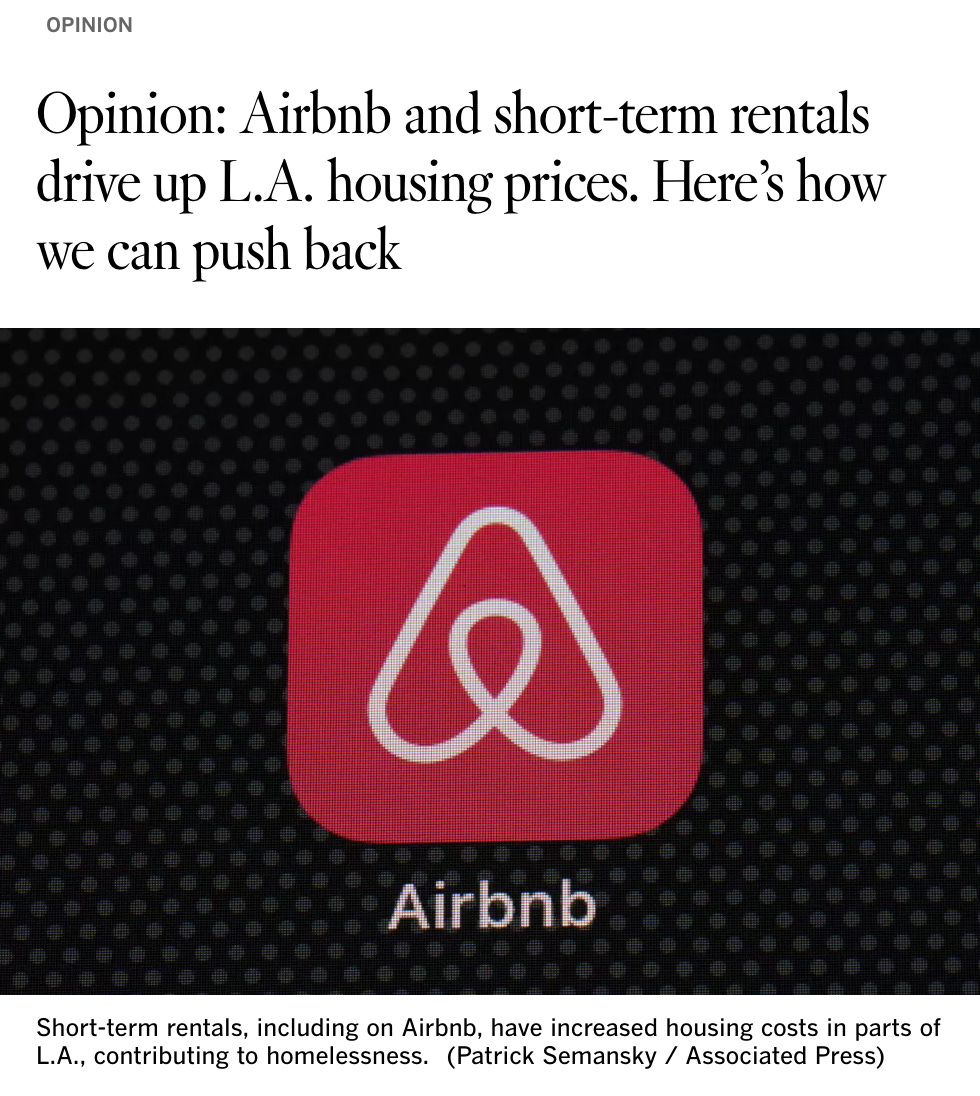It's Time for Some Populist Housing Policy
Short-term measures are needed to provide relief and guard against political extremists.
Housing is at the heart of public anger over inflation and the cost-of-living crisis:
A Gallup poll in May found the cost of owning or renting a home ranked as Americans’ second-most important financial problem, after the general high cost of living. It ranked third among young voters in a Harvard poll this spring, with 56 percent of those surveyed calling housing a top concern.
From Phoenix to Milwaukee, previously affordable metro areas are no longer accessible to people of limited means. While the so-called “YIMBY movement” is right that more supply is necessary, adequate supply will take many years to build. With frustration over unaffordable housing fueling support for Donald Trump’s reelection and reactionary xenophobic politics, it is absolutely essential that the Kamala Harris campaign — and Democratic Party more generally — put forth ideas to address housing costs in the short-term.

The following policy ideas would reduce rents and house prices while also demonstrating that Democrats are taking the unaffordable housing crisis seriously. Moreover, as supply increases in the medium- and long-term, these policies would help to ensure new houses and apartments are available for long-term shelter and remain affordable. Some measures would have a bigger impact on rents while others would be more helpful for potential buyers — in most cases, the benefits overlap (i.e. Airbnb bans preserve long-term rentals and push some speculators to sell investment properties) — and variations of each idea could potentially be implemented at the federal, state, and local levels.
Sensible rent stabilization laws are needed to protect incumbent tenants from displacement and guarantee security of tenure in their homes. Los Angeles County provides a model policy that accounts for inflation. Harris could build on Joe Biden’s proposal, but advance a policy that covers more units and doesn’t expire after two years.
States and cities should be encouraged to incentivize — perhaps even mandate — multi-year leases for residential tenants. In European countries, a 12-month lease, even a two-year lease, is considered “short-term,” but most U.S. landlords will only offer annual leases. A multi-year lease — at least three years — offers renters more housing stability, which is particularly important for families with children enrolled in neighborhood schools.
Regulators should ban or strictly regulate algorithmic software used to set rents, because they lead to collusion and price-gouging. San Francisco is leading the nation on this — Harris should praise her hometown for this action!
Airbnb — and other vacation rental platforms — should be severely disciplined or banned to ensure as many housing units as possible are available for long-term shelter. There is reliable evidence that short-term rental platforms drive up housing costs by removing affordable housing from long-term rental markets. New York, Barcelona, and Valencia have all introduced policies that come close to banning most short-term rentals. These policies are important, because the contribution of vacation rentals to housing crises in high-demand cities is probably greater than recognized.
Non-resident foreign ownership of residential real estate should be punitively discouraged or banned. While holders of long-term visas and green cards would be allowed to purchase residential real estate on the same terms as citizens, others would either face additional taxes or an outright ban. Ontario’s Non-Resident Speculation Tax (NRST) is one example. New Zealand and Singapore have also taken actions to preserve high-demand housing stock for actual residents. Trust in government and democracy is undermined when foreign speculators effectively price citizens out of entire cities.
Corporate and private equity ownership of single-family homes should be banned. When large corporations own a massive number of single-family homes in metro areas, they simultaneously collude to keep rents high and reduce the supply of single-family homes available for sale. It’s a no-brainer to push these problematic firms out of housing markets.
The U.S. Department of Housing and Urban Development should encourage states and cities to adopt the social housing model, which would create permanently affordable rental housing — existing alongside the private market — in towns and cities across the country. The model would also help to “reset” the country’s problematic relationship with public housing by introducing a more effective approach to government-developed housing. While embracing social housing would be more of a long-term policy, in the short-term cities could move forward by purchasing existing multi-family housing for use as social housing stock.
None of these ideas are particularly radical. Dean Phillips, a centrist Democrat who participated in the Problem Solvers Caucus, included many of them in his primary campaign’s policy platform. Others — like rent stabilization, social housing, and multi-year leases — are being advanced by the right-wing Dutch government.
If it feels like there’s a degree of “housing populism” with some of the ideas, you’re right. I don’t think that’s necessarily a bad thing, however, because pushing back against powerful interests like hedge funds, Airbnb, and corporate landlords requires significant public support. Politicians need to know voters will reward them for turning down lobbyist dollars and pulling all available levers to reduce the cost of housing as quickly as possible.


